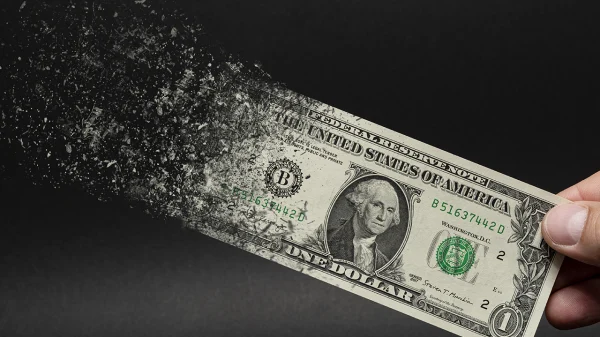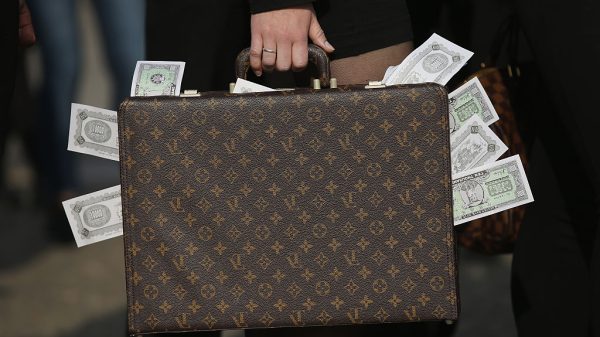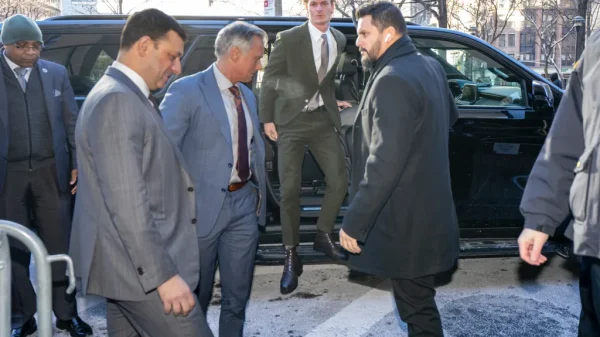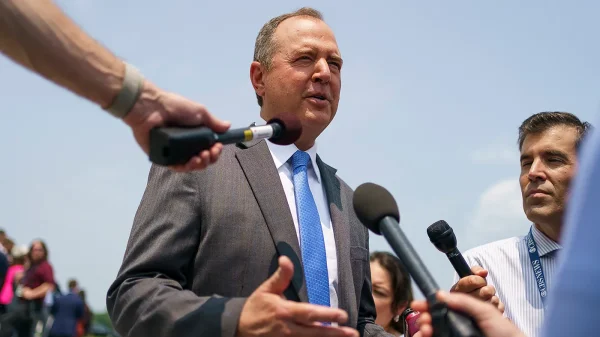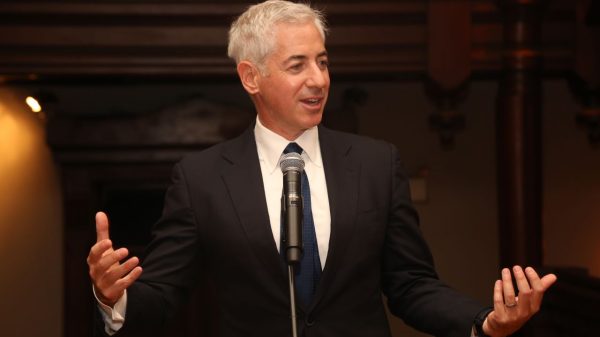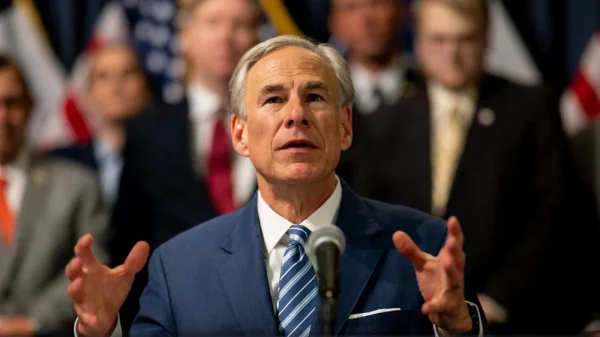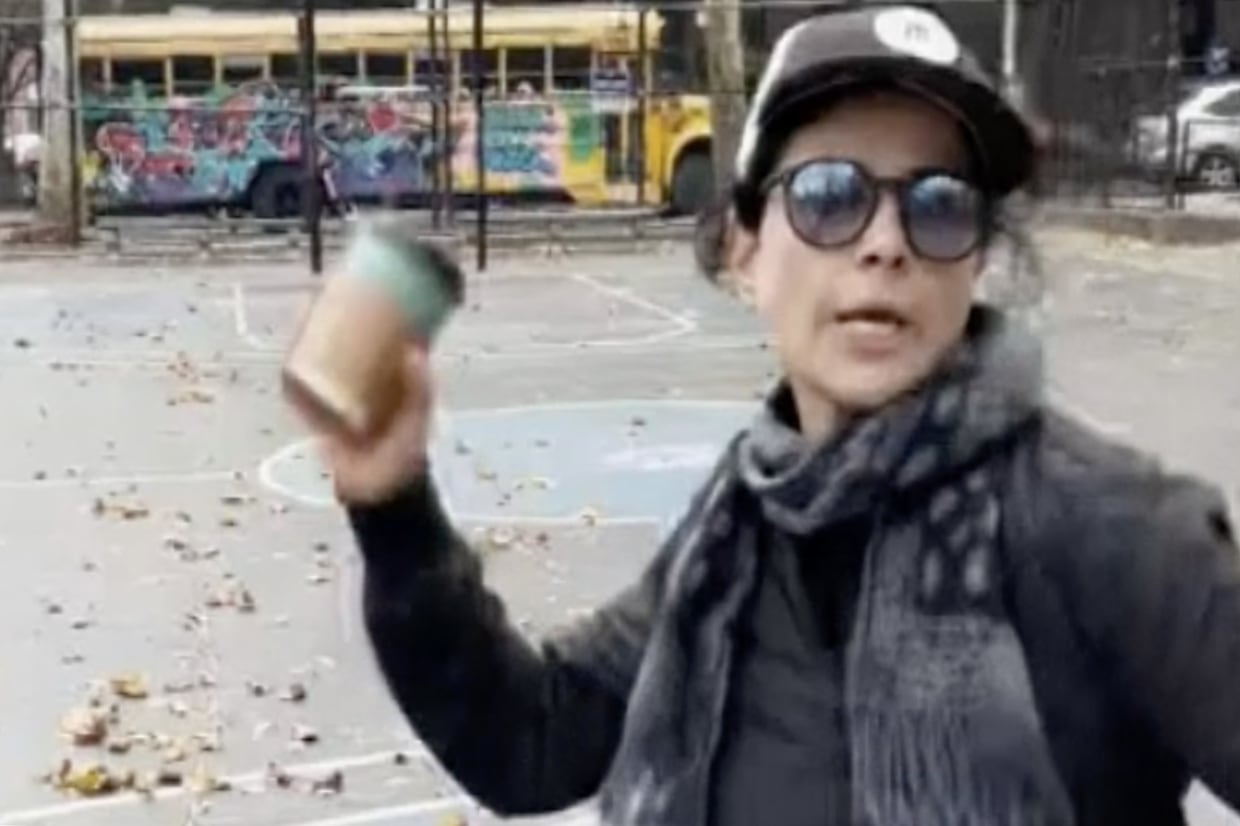
It took two weeks of rallying from a Brooklyn community to arrest a woman suspected of hate crimes against an Indian man and his toddler. The incident and the police response to it have left the man, Ashish Prashar, shaken and worried for other brown children in New York City, he told NBC News.
Prashar, 40, was wearing a Palestinian kaffiyeh when he took his 18-month-old son to his favorite Fort Greene park on Nov. 7. There, he said, a woman approached the two of them and asked Prashar whether he supported Hamas. He said that when he tried to de-escalate the situation, she called them “terrorists” and “dogs” and told them they didn’t belong there.
He caught some of the incident on video, recording her as she hurled her phone and a hot drink at them, according to a police report. The clip went viral after he posted it to his social media accounts. He said he filed a police report the same day, but no arrest was made until 14 days later.
“This woman is willing to attack a child, a child on a playground, and the police left our community vulnerable,” Prashar said. “How many kids of multiracial backgrounds are there in Brooklyn? She might see them. … She could attack them, too.”
Hadasa Bozakkaravani, 48, surrendered to police on Nov. 21. She was charged with nine total counts, including four hate crimes: assault, assault of a person under 11, reckless endangerment, and aggravated harassment and menacing, police said.
She has pleaded not guilty to all charges and was released on her own recognizance. Her lawyer didn’t return a call seeking comment.
Prashar said he made a split-second decision to move his son from his arms to behind his back during the attack, which he thinks shielded the boy from potentially serious injury.
“If that phone hit him, it could have killed him or put him in critical care,” he said. “She’s a threat to the safety of children who are brown in the city.”
When Prashar initially filed his police report and showed officers his video, he said, they seemed eager to help. But then days passed, and he said it didn’t seem like they were doing everything they could to find and arrest his attacker.
New York police provided a description of the alleged crimes but didn’t respond to questions about why it took two weeks to arrest Bozakkaravani.
It was community members in Prashar’s Brooklyn neighborhood who made a push to track Bozakkaravani down, he said. Screenshots from his video began to make the rounds, and locals plastered images of the woman in the video on posts spanning over a mile around the neighborhood.
“All the moms in our neighborhood rallied around and made flyers and posters to try and find this woman,” he said. “There was a poster on every other lamppost.”
Prashar said he’s happy that Bozakkaravani was arrested and charged with hate crimes, but he worries that other brown New Yorkers and their children could be exposed to violence now that she has been released.
“I’m really disappointed in the judge, who has left brown kids today vulnerable,” he said. “If you are a parent of a brown child … the justice system should be protecting the community from an actual threat.”
Prashar has returned to the park since the incident, he said, but he always makes sure another adult is with him when he leaves home. Though the fear lingers, he also said he will never take off his kaffiyeh, a scarf that has now become a symbol of solidarity with Palestinians.


